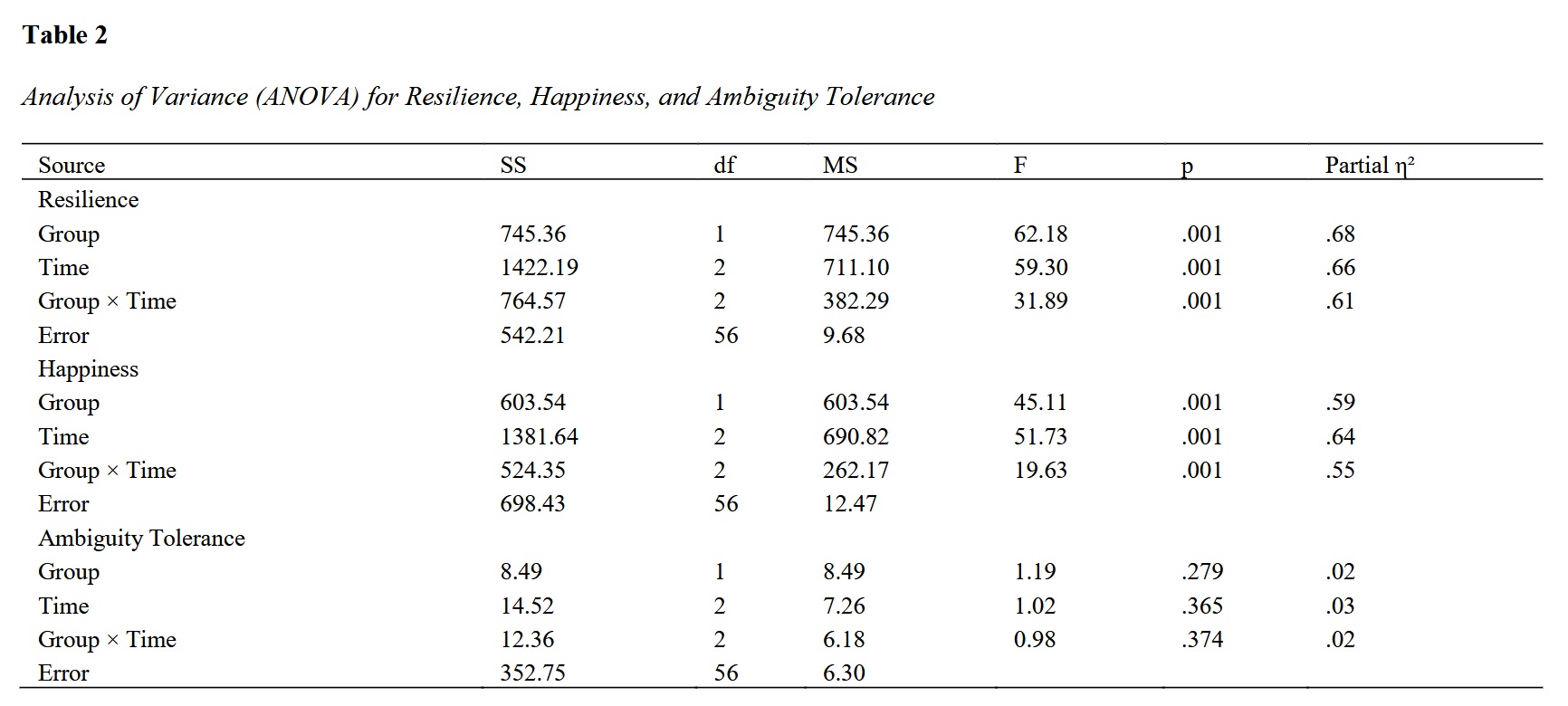The Effectiveness of Mindfulness-Based Cognitive Therapy (MBCT) on Resilience, Happiness, and Ambiguity Tolerance in Mothers of Children with Autism
Keywords:
Cognitive therapy based on mindfulness, Resilience, Happiness, Ambiguity tolerance, AutismAbstract
The aim of this study is to investigate the effectiveness of Mindfulness-Based Cognitive Therapy (MBCT) on resilience, happiness, and ambiguity tolerance in mothers of children with autism. The present research is applied in nature and employs a quasi-experimental design with pre-test, post-test, follow-up, and a control group. The statistical population of this study consists of all mothers of children with autism in the city of Rasht who visited the Gilan Autism Support Charity in 2023. A sample of 30 participants was purposefully selected. The intervention consisted of eight 90-minute sessions of MBCT training conducted in groups, twice a week, based on the method of Kabat-Zinn (2003). To collect data, the Connor-Davidson Resilience Scale (2003), the Oxford Happiness Questionnaire (1989), and the McLain Ambiguity Tolerance Scale (2009) were used. Data were analyzed using SPSS software. The results indicated that the MBCT intervention led to an increase in resilience and happiness scores in mothers of children with autism, but no improvement was observed in ambiguity tolerance scores. Given that resilience skills can be learned and that psychological interventions, including MBCT, can improve resilience by reducing negative emotions and fostering positive emotions, MBCT, through combining vitality and clear perception of experiences, can create positive changes in happiness.
Downloads

Downloads
Additional Files
Published
Submitted
Revised
Accepted
Issue
Section
License
Copyright (c) 2025 Shiva Ebrahimifar (Author); Mahdieh Rahmanian (Corresponding Author)

This work is licensed under a Creative Commons Attribution-NonCommercial 4.0 International License.






